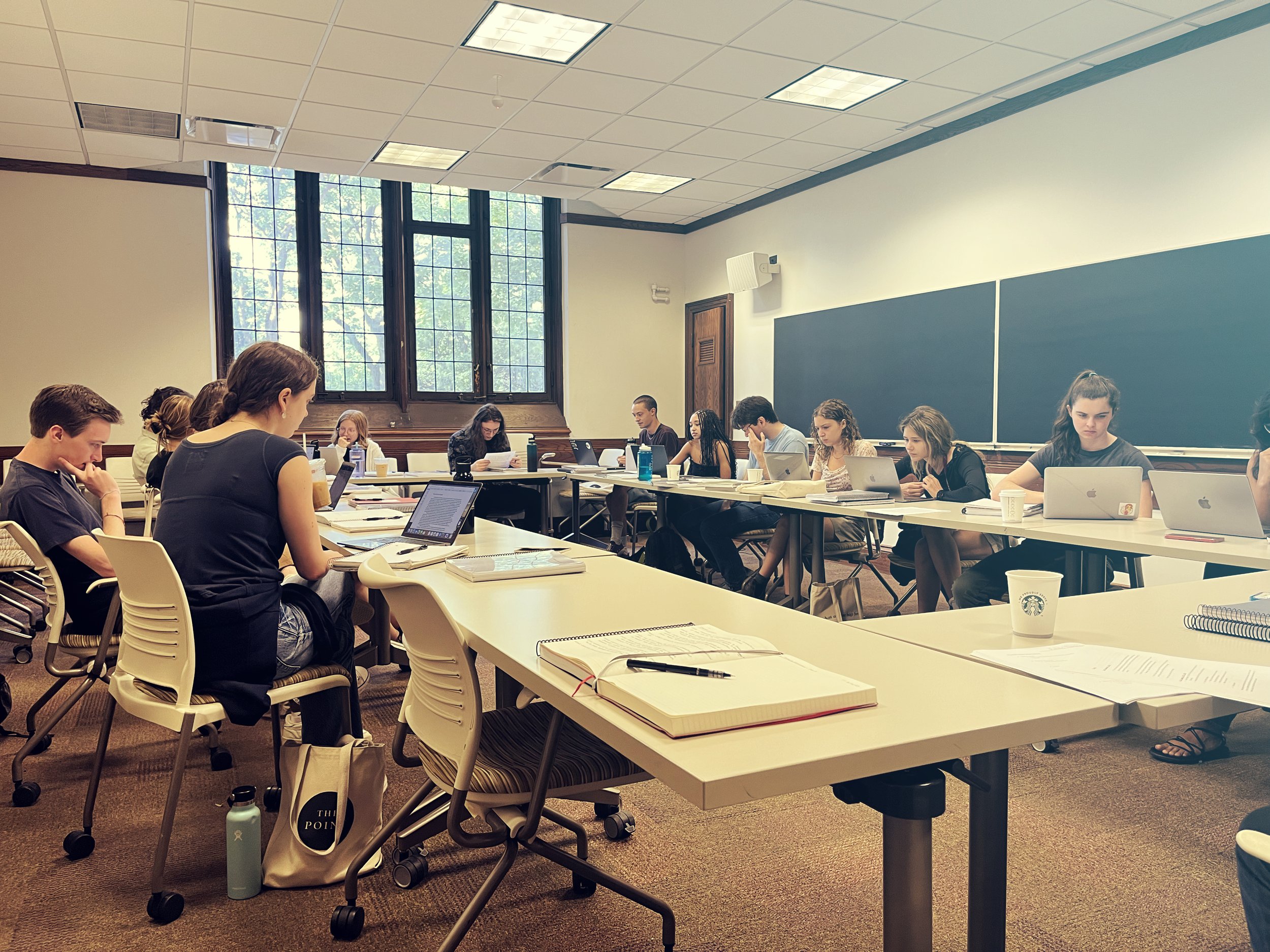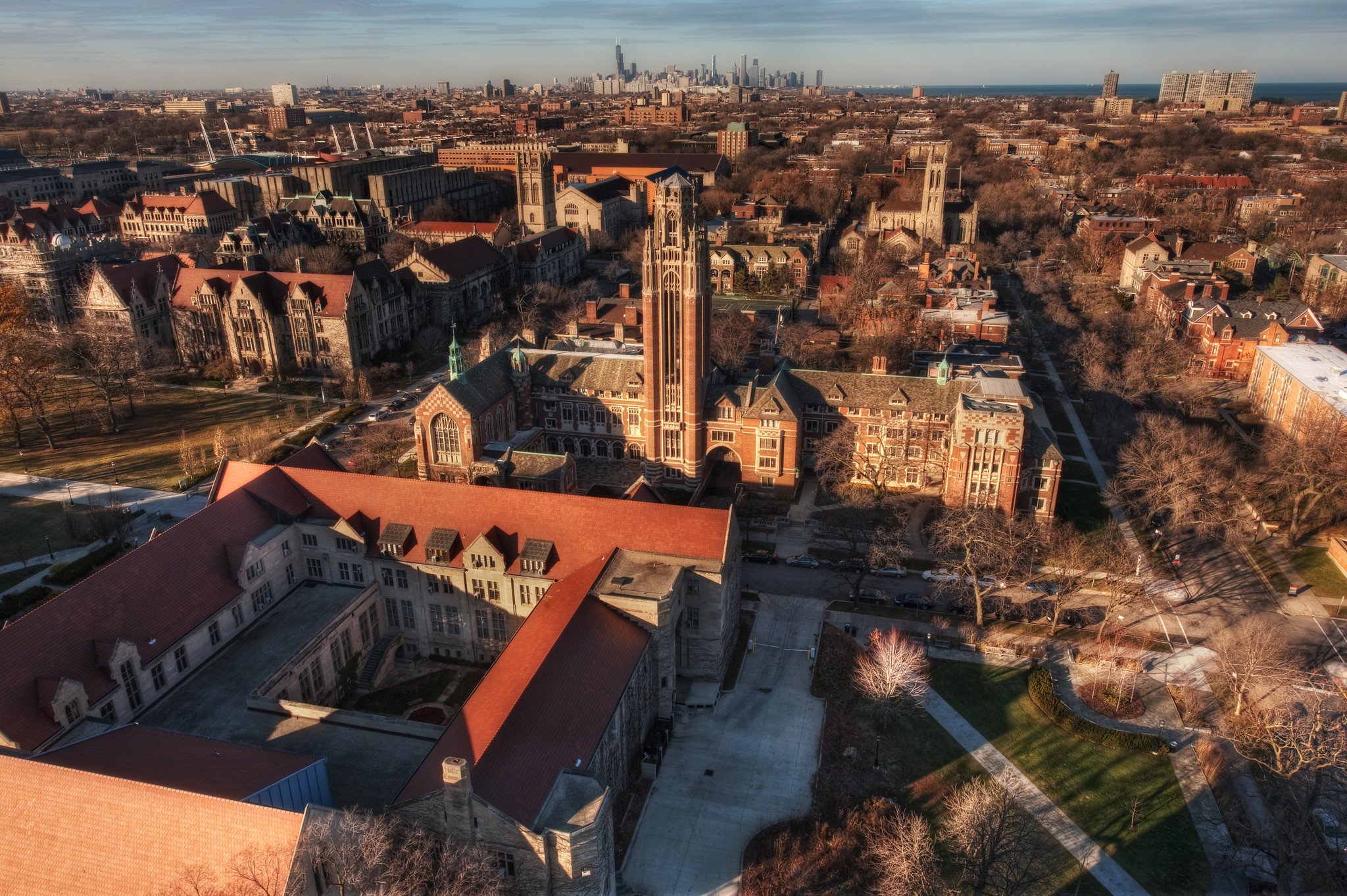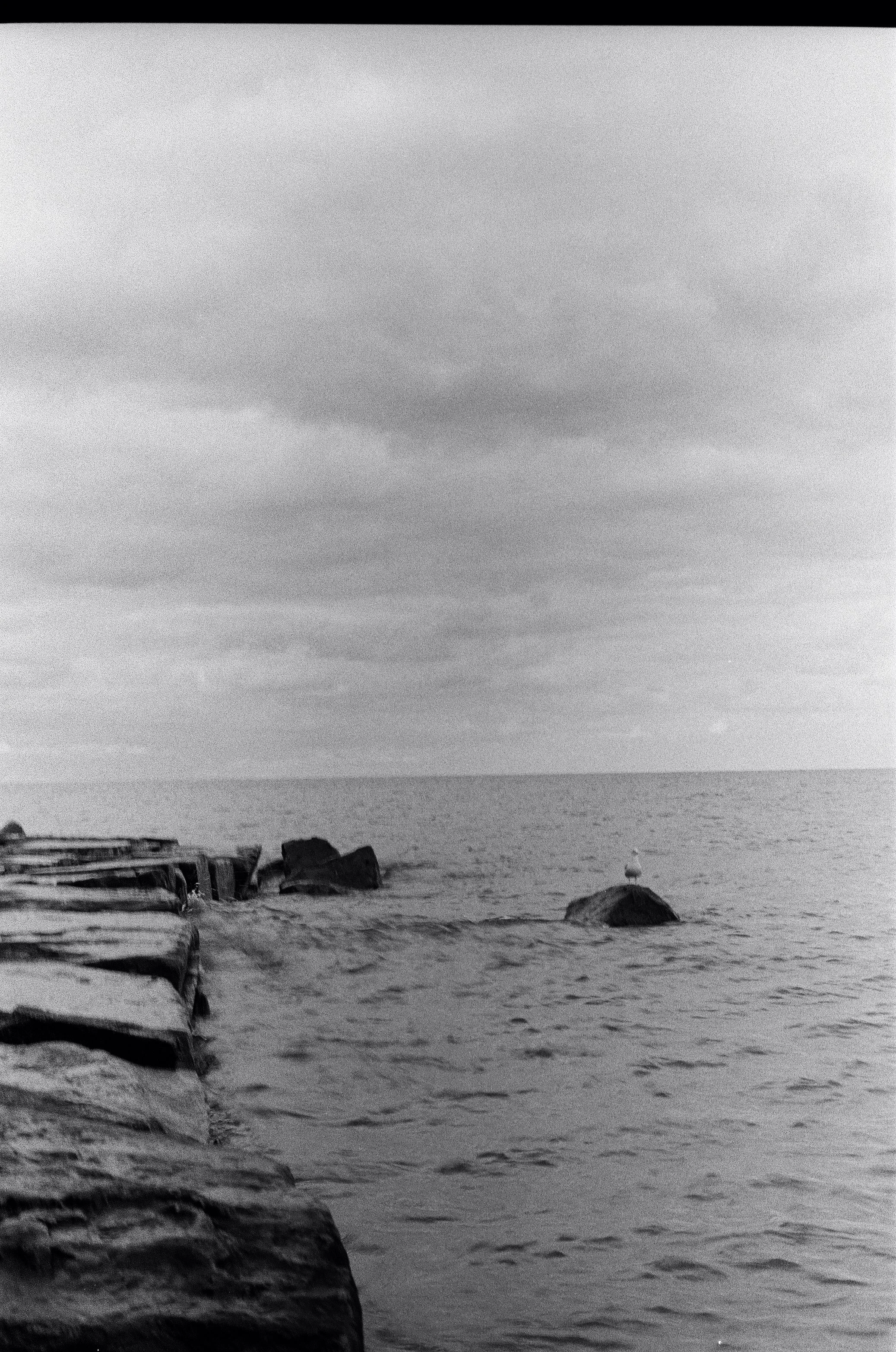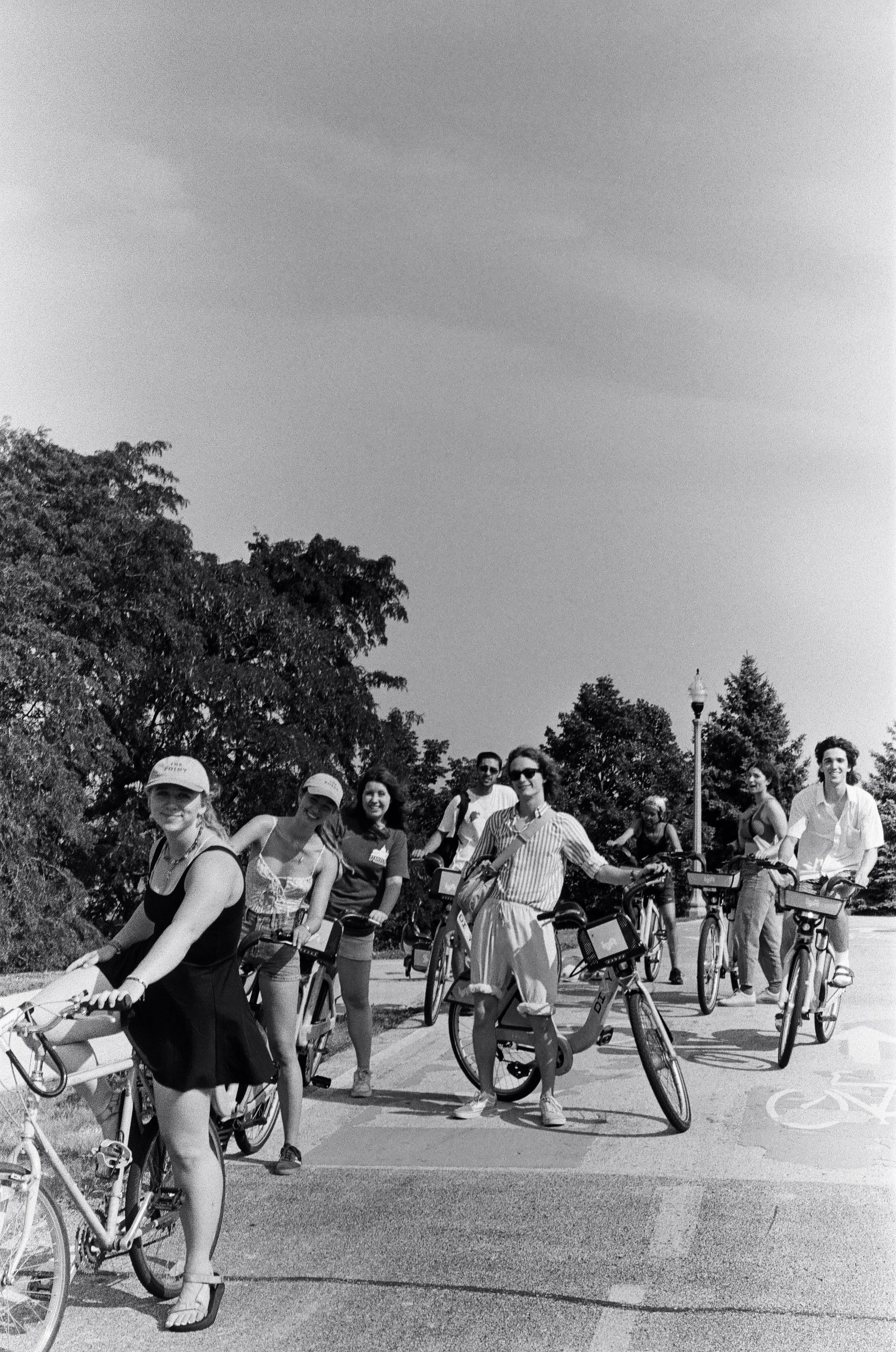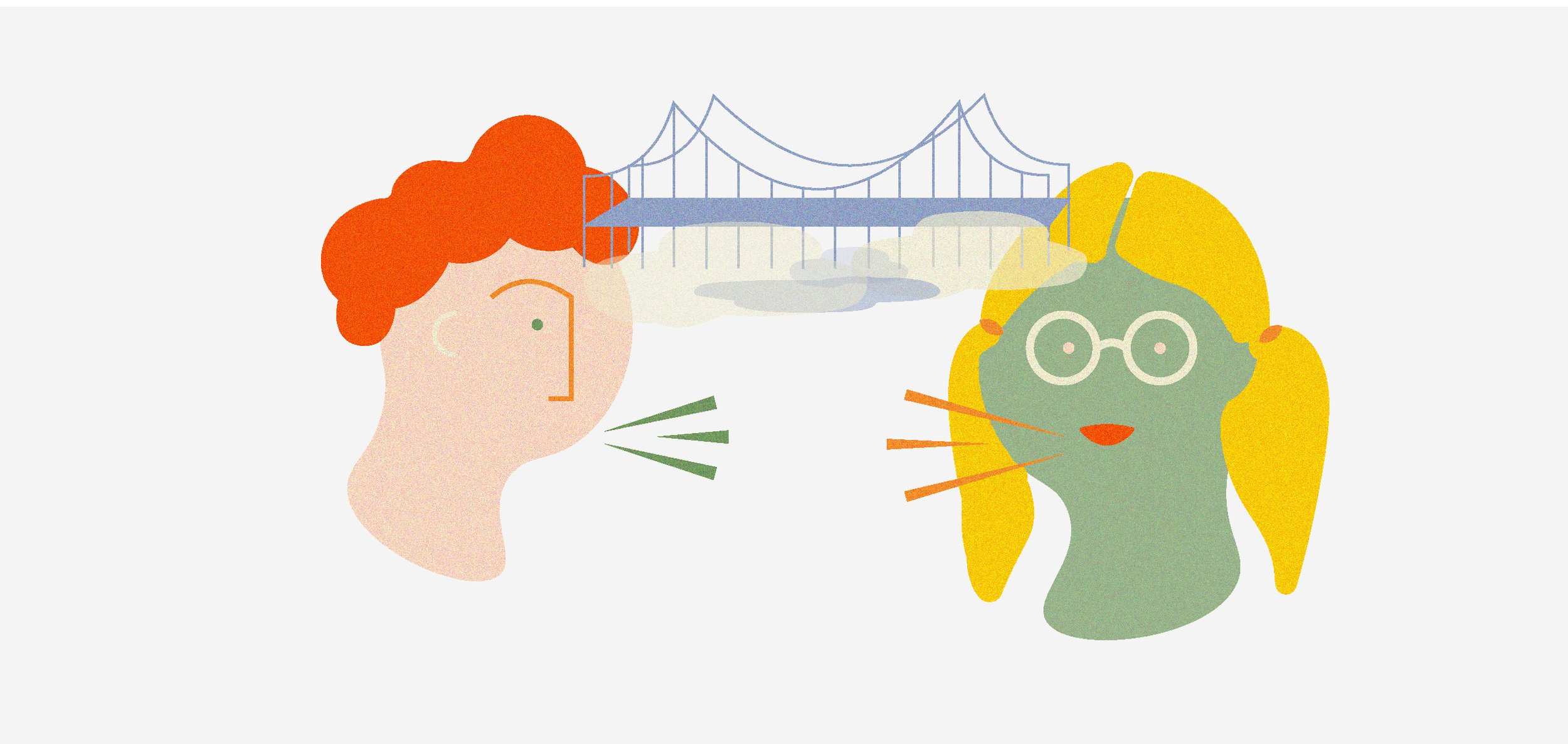SUMMER
WORKSHOPS
The Summer Workshop provides a space for undergraduate students interested in journalism, criticism, politics, art, and nonprofit work to learn about and practice engaging the public through dialogue and writing.
All student expenses, including tuition, room, and board, are covered. College credit is offered to all attendees.
2025 WORKSHOP THEMES
Art & Immorality
August 4-15
at the University of Chicago
FREE FOR ALL
ADMITTED STUDENTS
Recent conversations about art have often emphasized the question of whether we are allowed to enjoy art that manifests or is created by someone with “bad” political beliefs. Some have argued we should censor or at least heavily criticize such art, while others hold that art can play an important role in moral formation precisely by exposing us to ugly truths about ourselves. But it has long been doubted whether art has anything to do with justice or morality, and in fact the ancient philosophers were largely in agreement with most medieval theologians–and Leo Tolstoy–that art was essentially immoral. Do we agree that there is something immoral–or at least nonmoral–in art, and, if so, how would this affect the ways in which we relate to it? What is the role of critics and commentators in relation to the moral content of art? And what would it mean to defend art against the charge of immorality, as Aristotle famously did, and describe it as playing a role in a healthy society?
Democracy
& the Elites
August 4-15
at the University of Chicago
FREE FOR ALL
ADMITTED STUDENTS
Who qualifies as an elite in a democracy, and what kind of authority do they possess? Are there good ways of being an elite as well as bad ones? What “responsibilities” do social, political, and intellectual elites have to democratic publics, especially when majorities oppose values that the elites take to be right or just? These questions have become central to our cultural conversation in recent years, but they are not new. From Plato’s philosopher-kings to Lenin’s revolutionary avant-garde to calls to dismantle an “illegitimate” elite–coming from both populists and progressives–in our own time, the proper role of elites in democracy has long raised deep questions about both the viability of government “by the people,” and the self-understanding of those who seek to guide or channel public opinion.
In both of these workshops we will explore the relationship between our topics together and with the help of compelling thinkers from past and present, facilitating the only kind of robust, living conversation adequate to meeting the challenges that these subjects have always raised.
Course structure
Throughout the workshop’s two weeks, students will learn how to apply the insights of foundational works of philosophy, history, and literature to illuminate contemporary challenges. At the same time, they will practice the habits of thought and expression that will allow them to contribute meaningfully and effectively to public discourse. Seminars will include guided readings, discussions, and writing exercises. The program will also include film screenings, trips to cultural institutions, and excursions around Chicago to explore the diversity of settings in which these questions are raised.
WORKSHOP INSTRUCTORS
-
Agnes Callard is an associate professor in philosophy at the University of Chicago. She is the author of two books, Aspiration: The Agency of Becoming (Oxford 2018) and Open Socrates (Norton 2025). Her writing has been published in the New Yorker, the New York Times, Harper’s, Liberties, and elsewhere. She was the author of a popular public philosophy column that appeared in The Point.
-
Jonny Thakkar is an assistant professor in political science at Swarthmore College as well as one of the founding editors of The Point. His first book,Plato as Critical Theorist (HUP, 2018), argues for the notion of “philosopher-citizens” by way of Plato, Marx and Rawls.
DEMOCRACY & THE ELITES
-
Jon Baskin is a founding editor of The Point and former deputy editor of Harper’s. He served as associate director of the Creative Publishing and Cultural Journalism program at the New School for six years. His essays and criticism have appeared in the New Yorker, the New York Times, the New York Review of Books, the Nation, the Chronicle Review and elsewhere.
-
Anastasia Berg is a writer, critic and editor at The Point. She is an assistant professor of philosophy at UC Irvine. Her book, What Are Children For?, co-authored with Rachel Wiseman, is coming out with St. Martin’s Press in June. She led the first summer workshop in 2023 with Jon Baskin.
ART & IMMORALITY
The goal is not just to arrive at the answers for oneself, but also to consider what it means to think with one another—and with the “public”—in a pluralistic society.
Students are housed on campus in University of Chicago dorms for the duration of the two-week workshop.
Tuition is free. Room and board will be provided at no cost to the students.
What our students had to say about the first workshop…
“In one of my writing reflections during the first week, I wrote: ‘this feeling of being part of academic dialogue is as new as learning to walk for the first time.’”
“The attempt to think instead of merely being clever was amazing. I felt challenged at every end.”
“Despite studying a variety of disciplines in college, this workshop is the most intellectually stimulating experience I’ve had.”
“I learned more than I have in most full-year classes and was exposed to a type of thinking and learning I didn’t know existed. If the point, as I understand it, was for us to rethink our relationship to education, the public, and the future, it was achieved.”
“This was the best, most intellectually diverse (and kind) group I’ve ever spent time in.”

